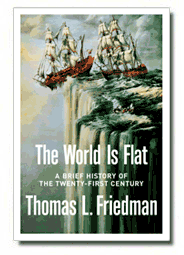
At both ends of the Cricket World Cup played at the Caribbean, the Indian National Flag was at the centre of a controversy.
Bollywood Star and TV anchor Mahindra Bedi was just recovering from the outrage of the Sikh Community for for displaying a Sikh religious symbol 'Ek Omkar'on her semi nude back below the neck as a tattoo.
"Ek Omkar" (God is One) are the first words of the Sikh scripture, the Guru Granth Sahib.
The Sikh community was incensed that Manhindra was hurting their religious sentiments. They demanded that she apologise and she promptly gave them one which was accepted.
The dust hardly settled down before she found herself in the news again, for the wrong reason.
Now she isn't just reporting the news. She is also news.
As the TV anchor hosting the final between Sri Lanka and Australia, to the dismay of many Indians she came into the show wearing a saree - designed by Puneet Nanda of designer label Satya Paul — that had flags of all countries in the World Cup.
TV footage showed that the Indian flag appeared in the folds of her saree below her knee, near her foot. Soon she realised the storm she caused again. She changed her saree and the show continued. She and her designer offered a profound apology but the damage was already done.
A Jaipur resident, accused Mandira of disrespecting the tricolour by wearing it as a design on her sari and has lodged a police case against her.
Before the World Cup began, India's star batsman Sachin Tendulkar found himself unintentionally flouting the national flag. At a party on March 11 held by the Indian High Commissioner to Jamaica, K L Agrawal, Tendulkar was seen cutting a cake.
It would seem that there is nothing wrong here for a party that included the entire Indian team. But there was a problem. Photographs clearly showed the tricolours of the Indian flag on the cake.
As per the Prevention of Insults to National Honour Act, 1971, not only is this act unethical and insensitive, but it also amounts to an offence with a maximum of three years imprisonment or fine or both.
The Indian Cricket Board quickly reacted to calm the irritated nerves. They said the incident should not be blown out of proportion as Tendulkar was a person who would never show any disrespect to the national flag.
"Tendulkar has spoken to me. He says that the function was organised by the India High Commission and with so many people around he did not realise the colour of the cake when he was suddenly asked to cut it," BCCI Vice President Rajeev Shukla said.
Shukla said that Tendulkar could not be held responsible as it was a function organised by the Indian High Commission.
"The High Commission should have taken care of these things".
"Tendulkar will not do such a thing intentionally. He respects the national flag and had even sought permission to use the tricolour on his helmet. If an explanation is sought, it should be sought from the Indian High Commission", Shukla said.
The Union Minister of State for Home, Sriprakash Jaiswal said that in all probability it was unintentional.
"The person who made the cake should be held responsible for this," he said.
Irony over irony- imagine the fall guy who has to bear responsibility.







